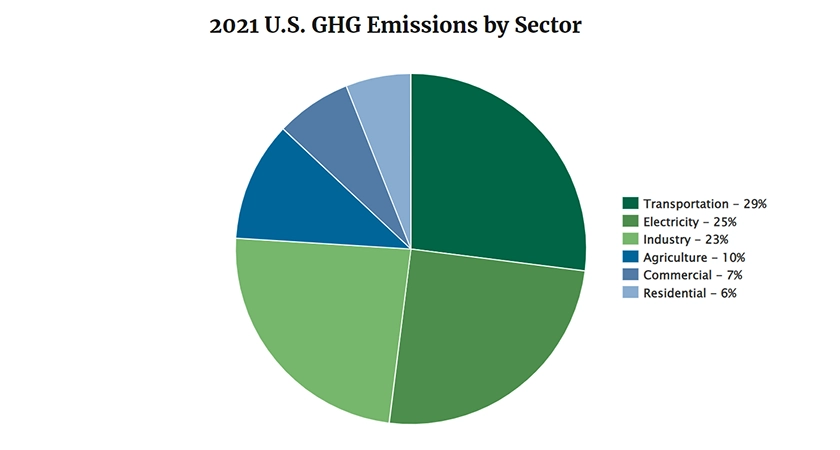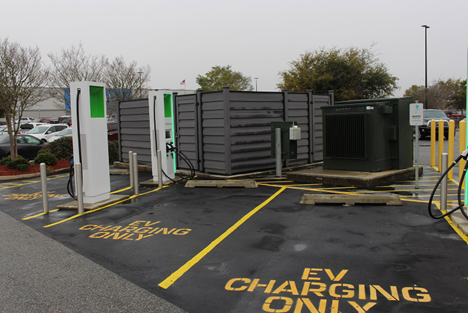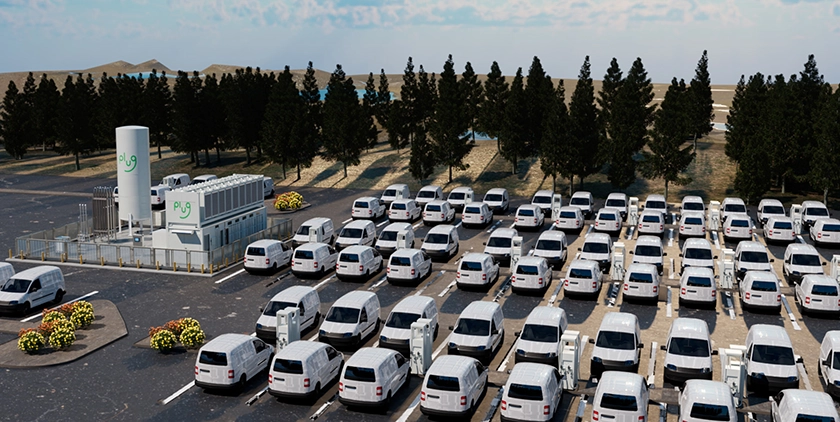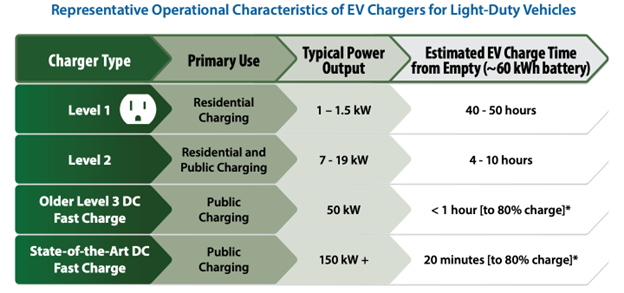How Fuel Cells Can Power the Electric Vehicle Boom
As the debate rages over battery electric vehicles (BEVs) versus fuel cell electric vehicles (FCEVs), Plug thinks both have viable applications and we’re here to help customers interested in either option. As we move forward, we know this for certain: BEVs are here and they’re coming on fast.
BEVs are on the rise, with governments such as the state of California and the European Union shifting away from combustion engine cars by 2035 and U.S. federal incentives pouring $7.5 billion into building 500,000 new electric vehicle chargers along U.S. roads and highways.
This rise of EVs, and the policy architecture buttressing it, has a key central premise: a need to slash greenhouse gas emissions from transportation, 20% of all global emissions, and an even higher 29% of U.S. emissions as of 2021.

But that premise also has a central dilemma: the amount of charging infrastructure needed to power the EV boom has meant the dominant electricity grid fueling an increasingly electrified fleet has come under increasing duress.
And though that is the current state of play, it doesn’t need to remain so. Green hydrogen fuel cells deployed by Plug — a leading provider of turnkey green hydrogen solutions for over a quarter century — can play a key role in ensuring a faster transition from internal combustion engines to EVs in the months and years ahead.
Fuel Cells Can Fill the EV Electrification Gap
Currently, electric vehicle charging infrastructure relies heavily upon the energy fed into them via centralized fossil fuel-burning power plants. The plants are generally highly polluting, both due to greenhouse gasses and the co-pollutants they emit into the atmosphere.
And even outside of fossil fuel reliance concerns, the practical reality of lack of access to electric vehicle charging infrastructure across the roads for both everyday and commercial fleet drivers — regardless of power source — stands as a central roadblock in scaling the technology to full potential.
Some math is warranted: given there are 145,000 gas retail stations across the U.S., with an average of nine pumps per station and an approximate 1.3 million gas pumps total, that means you’d need 20 million EV chargers to match that fueling capacity. Though this does not take into account at-home charging stations, it’s clear that the current 41,000 publicly accessible charging stations is far below what’s needed to support the projected EV adoption curve, requiring a 31-fold level increase to match the fueling capacity currently in place via retail gas stations. This means we’ll need both more EV chargers and more power to support those chargers.

That math has implications for the not-so-distant future.
By 2030, an estimated 48 million EVs will drive on U.S. roads and 10% of those will be fleet vehicles, or those used to carry out day-to-day public and private sector activities. The Smart Electric Power Alliance has predicted that by 2030, the amount of energy needed to power burgeoning EV fleets will equal that of powering 21 million new homes or 1.7 million new homes per year for the next seven years – a number significantly greater than the 1.3 million homes currently built annually.
To say the least, scaling up EVs to a significant degree will present significant impacts to the electricity grid as we know it today, something the U.S. government has pointed out.
“About 6 high-power chargers draw roughly the same amount of power from the grid as a small hospital, and a typical fast-charging plaza, with potentially 20 such chargers will triple that demand,” the Idaho National Laboratory has explained, as a case in point of those impacts, writing in support of studying microgrids as a distributed generation alternative to the status quo. “As more of these stations come online, they could disrupt the grid that delivers power to individual users. The existing utility infrastructure isn’t designed to meet the requirements for widespread, high-power electric vehicle charging.”
And that’s where distributed energy resources, also called distributed generation, come into play. Distributed generation (sometimes also called “self-generation”) is a technical name for solar, wind, or fuel cell-based electricity generated outside of the dominant electricity grid. Also known as DG or DERs, electricity generated in this fashion can exist either alongside or else “islanded” from the electric grid as a microgrid. With the grid under the status quo scenario increasingly overextended due to the reliance of EVs upon it, distributed energy will play an important role in ensuring a steady supply of electricity for a burgeoning fleet.
With these imperatives firmly in mind, Plug’s1MW fuel cell power system is built for the moment.

Modular and with the ability to scale up or down to desired project sizes as business and consumption needs evolve, it has full turn up and turn down capability such that the system only makes as much power as is needed, which allows it to serve as an ideal distributed generation technology. It can also fit within microgrids or augment the electric grid’s supply, combining hydrogen and oxygen to produce electricity, with water and heat generated as its only byproducts – zero on-site carbon emissions.
When utilizing Plug’s green hydrogen, hydrogen coming from renewable energy sources, with the 1MW fuel cell power system to charge battery EVs, it is truly clean transportation. This can also help the current array of public electric vehicle “charging deserts” and commercial fleet operators to bloom, assisting governments and private sector partners in meeting sustainability and climate goals.
Plug’s Fuel Cell EV Charging System in Context
For a standard 18,000-gallon liquid hydrogen tank utilized by Plug, our newly announced 1 MW fuel cell power system for charging commercial EV fleets can provide more than 60 megawatt hours (MWh) of energy.
To get an idea of how many EV chargers can be powered at once with a single 1 MW fuel cell system: 50 level-2 chargers, and five to six level-3 chargers. The higher the level of the charger, the faster it can charge a vehicle. That’s the ability to charge more than 500 delivery vans with 113kWh batteries.

With all of that in mind, fleet operators or those aiming to adopt EV charging infrastructure for passenger vehicles can do so in a matter of months, rather than years in areas currently experiencing grid constraints.
Plug Fuel Cells Power Electric Vehicle Charging
The consultancy Guidehouse Insights has predicted global demand for EV charging infrastructure to rise to $207 billion by 2030 and numerous fuel cell companies are now emerging in the EVs charging space, as pointed out by the Fuel Cell and Hydrogen Energy Association.
In this developing landscape, Plug stands ready to deploy its fuel cell power system as part of its broader green hydrogen ecosystem as the generational technological tectonic shift continues in the transition from the internal combustion engine vehicles.
Thanks for reading! For more on Plug’s EV charging capabilities, check out our eBook. And if intrigued, please touch base with our stationary power team to learn more about prospective partnerships.
The post How Fuel Cells Can Power the Electric Vehicle Boom first appeared on Plug Power.
The post How Fuel Cells Can Power the Electric Vehicle Boom appeared first on Plug Power.